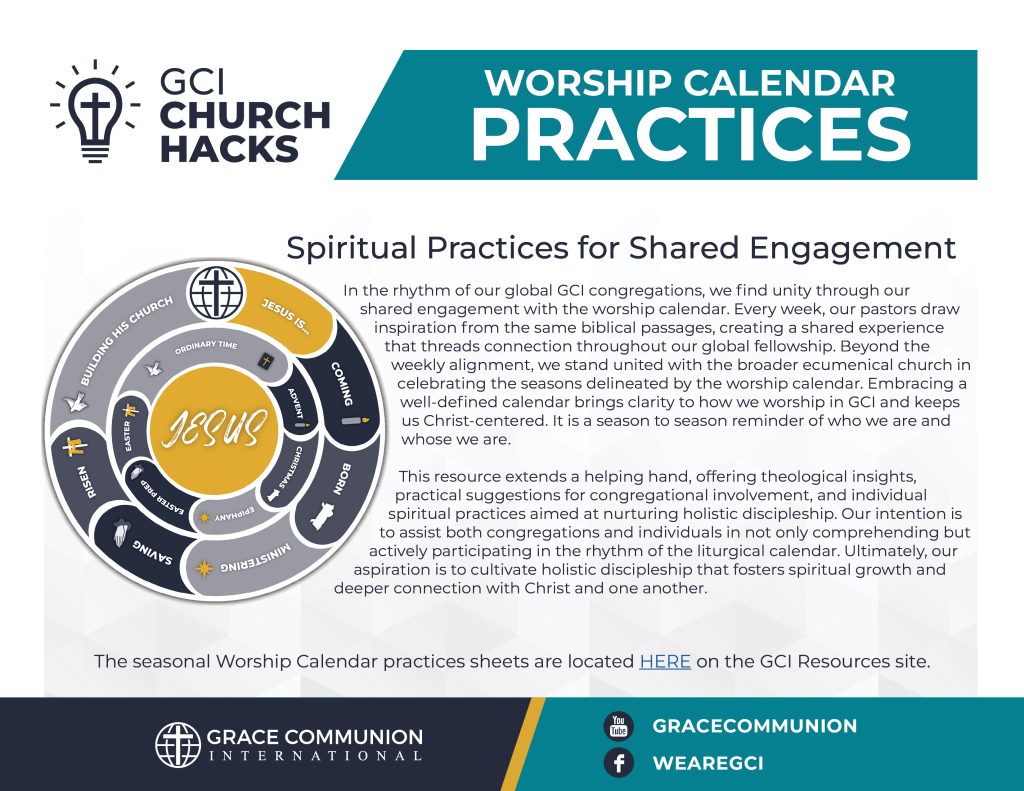The Weight of Glory w/ Jon Ritner
Welcome to the Gospel Reverb podcast. Gospel Reverb is an audio gathering for preachers, teachers, and Bible thrill seekers. Each month, our host, Anthony Mullins, will interview a new guest to gain insights and preaching nuggets mined from select passages of Scripture in that month’s Revised Common Lectionary.
The podcast’s passion is to proclaim and boast in Jesus Christ, the one who reveals the heart of God, Father, Son, and Holy Spirit. And now onto the episode.
Anthony: Hello friends and welcome to the latest episode of Gospel Reverb. Gospel Reverb is a podcast devoted to bringing you insights from Scripture found in the Revised Common Lectionary and sharing commentary from a Christ-centered and Trinitarian view.
I’m your host, Anthony Mullins, and it’s my joy to welcome our guest, Jon Ritner. Jon is the author of the book, Positively Irritating, which is about embracing a post Christian world to form a more faithful and innovative church. He’s also a coach and consultant to Christian leaders. And I’ve personally gained tremendous insights from Jon as he coaches me in planting a new church in Durham, North Carolina.
Jon has pastored churches himself in Virginia, California, and of all places, Belgium. He’s been married to Kristyn for over 20 years, and they have two children, Addy and Jackson. And it’s our desire that this podcast would be positively irritating to you, and I’ll let Jon explain.
Jon, thanks for being with us. Welcome to the podcast. And since this is your first time on Gospel Reverb, what took you so long? We’d love to know a bit about your personal story and how you’re participating with the Lord these days.
Jon: Yeah. Thanks so much, Anthony. It’s great to be here in this setting with you, and I really have enjoyed getting to know you and Dishon, and so much of your tribe there at GCI at the event last year. I’m sure the reach of this even extends beyond that.
Briefly my story… I met Jesus in a fraternity house at the College of William and Mary through some guys who were followers of Jesus and were living kind of a missionary life in that environment. And I eventually felt God calling me into full-time equipping ministry, went to seminary in Chicago, met my wife Kristyn there. And we took a call at the same church that I had been attending when I was a college student back in Williamsburg, Virginia. We served there for 10 years, watched it grow significantly.
And after about a decade, we felt a little bit of a sense of questioning of our effectiveness and our strategies and whether or not we were really making the quality of disciples that I felt like Jesus was longing for in the world. And as I began looking around the world, asking, how is God moving in new ways and what are some more effective ways that are resonating with this post-Christian future that I was sensing was coming, God called us to Brussels, Belgium.
So, we spent three years there on a missionary visa, planting micro churches, we called them, small, contextualized expressions of church that resonated with local communities. They were less about gathering people for worship and more about sending people out into mission, joining the life of Jesus in the places that they live, work, and play. And then from those missional experiences, creating smaller communities. And then trusting that the Holy Spirit would be leading people to become worshipers.
And that was an incredible time of growth for us and paradigm shift. And after three years there, we felt, man, the American church needs to experience this sort of innovative approach—and honestly, this ancient approach, more of a first century approach to doing church.
And so, we felt called to come back to the U.S. and help other churches adapt. And ended up of all places in Hollywood, California. And so, I worked for seven years leading a church of artists and storytellers and creatives who were resonating with the fact that traditional ways of making disciples were no longer working in their environment, that a discipleship strategy that relied on professionals, property, programs didn’t really resonate with the people that they were meeting on set and on studio lots. And yet they weren’t really sure how to make disciples themselves, or they didn’t know what it meant to be a disciple making person who didn’t rely on the institutional church.
And so, we spent seven years trying to equip and empower individuals to do that. And we started some missional community things that we called food truck churches rather than restaurant churches—small, nimble, scalable, adaptable teams that could go out into the community and offer up a gospel meal rather than simply having to invite people to a brick and mortar location.
And along that way, I ended up writing a book, that we entitled Positively Irritating, which was really about embracing the irritant of post-Christianity as a positive force for change in the local church. And so now after 20 years of pastoring in local communities, I do work with pastors and planters and even denominations to help them adapt to this new reality and to better understand what sort of disciple making pathways are needed for this new world that we live in, that is becoming increasingly post Christian.
So that’s a little bit of my story. And as always, in an urban environment, of course, it’s right now that we start this podcast that the garbage man decides to come empty the dumpsters outside my window. So, life has a way.
[00:05:34] Anthony: Life has a way. I’ve gotten to know you a bit over the past year or so and what stands out to me, Jon, in you the person, and the book that you wrote, is your love for Jesus and his body, the church. And in that book, Positively Irritating, you devoted a chapter encouraging readers to embrace and empower the different gifts the Lord gives to his body and to his people. And you highlighted the gift mix that I find fascinating in Ephesians 4 of apostle, prophet, evangelist, shepherd, and teacher often people know the acronym of A.P.E.S.T.
So why should people be familiar with A.P.E.S.T.? And in your opinion, where is the church getting it right, where are we pointing people to this gift and fanning the flame? Or where is there room for insights and growth? And can you tell us all of this in seven minutes or so? Maybe that’s the impossible thing.
[00:06:34] Jon: Yeah, no, you’re right. This really has become a passion of mine, and I’m so thankful for authors like Alan Hirsch and others who have done such a great job trying to articulate a better kind of theology around Ephesians 4 and these A.P.E.S.T. gifts. And really, my motivation for diving into this so deeply is just, I think the church needs to look more like Jesus.
We are called to be a conspiracy of little Jesuses out there in the world. And there’s something about the modern discipleship that is not forming people into the image of Jesus in a way that really reflects who I believe Jesus is. And I think that Ephesians 4 gives us a lens or an understanding of why that is and how the church may have distorted that.
Apostle, prophet, evangelist, shepherd, teacher. Those were all ancient professions in the first century. And when Paul is articulating them as gifts, I think part of what he’s getting at is this idea of functions or ministries. That these are five different ways that Jesus expressed the mission of God.
I won’t dive into all of them, but apostolic is more of a pioneering. The prophetic is more of a listening, interpreting, connecting with God. The evangelist was the storyteller, the recruiter. The shepherd we know as the heart and soul of a community who cares and nurtures. A teacher is an instructor, a legacy leaver.
All those functions are needed within a healthy church in order to fulfill the mission of Jesus—Jesus himself being an apostle, being a prophet, being an evangelist, shepherd, and a teacher. And as a local church tries to assess and analyze, are we living like Jesus, this becomes a tool in a way of understanding how Christlike we are.
And in my experience, the local churches tend to be really good at expressing the functions of shepherding and teaching. They’re good at care. Maybe they have community groups and fellowship halls that have meals and gatherings and support groups even. They do a good job caring for those who are widows or maybe divorced or going through addictions—a lot of shepherding care ministries. And then they’re fantastic at teaching Bible studies and Sunday school classes, and maybe a fantastic communicator on Sunday morning who opens the scripture and helps us understand God better.
Where we tend to struggle is with those “APE” gifts, the apostolic, prophetic, evangelistic gifts in that acronym of A.P.E.S.T. I joke in my book that the “APE” has become almost extinct in many American churches. They aren’t functions that we do well. And part of that is just because when we have lived the last 1800 years or so in more of a Christian culture, even a Christian worldview, those gifts were taken for granted.
We didn’t need to pioneer and take new ground. What we really needed to do was to do the shepherd teaching stuff, which was more about supporting and building up those who were already Christians. But now that culture is changing, there’s a need to really reclaim those three functions that we’ve missed out on and that we need to show the world what Jesus looks like as an apostle, a prophet, and an evangelist.
And so, in Ephesians 4, Paul takes those five functions, and he turns them into gifts and makes this incredible argument that in Jesus’ resurrection and ascension, he gifts to the church those five functions and gives everyone an individual gift.
And I’m a big basketball player, still in my late forties. And I’m still trying to relive my glory days. And the best analogy that I’ve come up with for kind of this idea of A.P.E.S.T. as it relates to gifts is thinking about a starting five basketball team. There are five primary functions that a basketball team needs to embody to be successful.
They need to handle the ball and distribute it. They need to shoot the ball. They need to have someone who’s able to cut to the basket and be a slasher. They need to rebound missed shots, and they need to defend the basket as well from the other team trying to do that. And so all five of those functions are needed for a healthy team.
But it’s rare that any one individual is great at all five of them. And so, what coaches do is they try to identify five individuals who are gifted in at least one, maybe two, of those functions. So, you get a point guard who’s good at dribbling and passing. You get a shooting guard who’s primarily responsible for making long distance shots; you get a forward man, a power forward who can rebound and defend inside. And then you put that team together and you say to everyone, hey, play to your strengths, but you also have to be growing in the other skills.
There will be a time when even the center is going to have to dribble the ball and take an outside shot. So, you can’t just throw up your hands and say, that’s not me. I don’t do that. And so, as a coach, your goal is to get everyone to learn from each other, grow from each other in these five areas of skill so that they are more skilled as a team.
And I think that’s what the argument Paul’s trying to make is that Jesus has given every individual a primary gift or skill that allows them to represent the nature of Jesus and to be part of the Jesus team, the church, and that we’re all learning and growing from each other. And as those five ministries work together, they will better represent the fullness of Jesus in the world.
[00:12:22] Anthony: I grew up on the Chicago Bulls, and I was just trying to imagine a team that was made up of all Dennis Rodmans. You could rebound, but nobody could shoot or dribble effectively. It’s so powerful when the entire body is working together.
And I felt a twinge of sadness when you talked about the apostle, prophet, evangelist being muted in the church, because what have we missed out on by that, right? Because they’re sitting there, or they’ve gone elsewhere because those gifts weren’t being exercised. So let me ask you this just as a follow up question. If I’m a pastor of a church and I’m thinking, yeah, I can see that with us. We’ve shepherded well, we’ve taught well, but we’ve really been missing out on the other parts of this gift mix, what would you say to them? How would you encourage them to reconsider the entire breadth of A.P.E.S.T.?
[00:13:14] Jon: If we really believe that Jesus gives these gifts to the local church in order to empower his ministry, then I believe the gifts are present in the lives of people in your local community.
The challenge is that the way the local church is structured, it often makes people who are gifted as apostles, prophets, and evangelists feel either diminished or feel a little bit constrained. And so, what tends to happen is they exist in the community, but they start their own ministries. They start parachurch ministries. (Young life is a great example of a highly evangelistic ministry to young people in the community.)
Or they feel a call to pioneer and go into areas in your neighborhood that others aren’t reaching. And so, they have this apostolic side, and they come to a pastor and say, I have an idea for a new ministry. But their new idea doesn’t fit with the existing structure. So, they just go do it on their own.
There are many prophets who are very wired towards issues of justice. They would sound just like the Old Testament prophets saying the heart of God is missing in this community; we’re not caring for certain people. And so, when they come to the church and say, we want to start a justice ministry, honestly, a lot of churches have struggled to incorporate a theology of social justice or theology of communal justice with their own individual evangelism relationships. And so, they don’t know what to do with them.
And so those people say forget it. I’ll just go do it on my own. And so, what I say to pastors is the first thing you need to do, if you’re missing the APEs, is you need to just be curious and do an assessment of your local community and say, where did they go and where are they working?
And rather than trying to colonize them or even recruit them back to your thing and say, hey, we miss you, we need you back in the church, come alongside them and say, hey, what you’re doing is a valid expression of the life of Jesus. How can we serve you? Do you need finances? Do you need prayer? Do you need volunteers? Do you maybe need care and teaching ministries to support your apostolic evangelistic efforts? But we want to start by serving you, believing that you have something that has value as well.
So those APEs are usually pretty skeptical about being recruited back into the church. They’re afraid that a pastor is going to domesticate their wildness, but if you embrace their wildness and offer to serve and support them, you’ll often find that they actually are in need of that level of champion in their ministry.
[00:15:54] Anthony: I think there are probably people listening going, oh, I want to know more; I need to think about this, need a process. So, I would highly recommend to any of our listeners to get the book (wherever you get your book content), Positively Irritating. It’ll be well worth your time to read it.
All right, so let’s do this. We’re here to talk about the lectionary passages. We’ve got four pericopes this month.
John 20:19-31, “Peace Be With You”
1 John 3:1-7, “The Weight of Glory”
John 10:11-18, “The Lord is my Shepherd”
John 15:1-8, “Sugar High”
Let’s transition to our first pericope of the month. It’s John 20:19-31. I’ll be reading from the Common English Bible. It is the Revised Common Lectionary passage for the second Sunday in Easter, which is April 7.
It was still the first day of the week. That evening, while the disciples were behind closed doors because they were afraid of the Jewish authorities, Jesus came and stood among them. He said, “Peace be with you.” 20 After he said this, he showed them his hands and his side. When the disciples saw the Lord, they were filled with joy. 21 Jesus said to them again, “Peace be with you. As the Father sent me, so I am sending you.” 22 Then he breathed on them and said, “Receive the Holy Spirit. 23 If you forgive anyone’s sins, they are forgiven; if you don’t forgive them, they aren’t forgiven.” 24 Thomas, the one called Didymus, one of the Twelve, wasn’t with the disciples when Jesus came. 25 The other disciples told him, “We’ve seen the Lord!” But he replied, “Unless I see the nail marks in his hands, put my finger in the wounds left by the nails, and put my hand into his side, I won’t believe.” 26 After eight days his disciples were again in a house and Thomas was with them. Even though the doors were locked, Jesus entered and stood among them. He said, “Peace be with you.” 27 Then he said to Thomas, “Put your finger here. Look at my hands. Put your hand into my side. No more disbelief. Believe!” 28 Thomas responded to Jesus, “My Lord and my God!” 29 Jesus replied, “Do you believe because you see me? Happy are those who don’t see and yet believe.” 30 Then Jesus did many other miraculous signs in his disciples’ presence, signs that aren’t recorded in this scroll. 31 But these things are written so that you will believe that Jesus is the Christ, God’s Son, and that believing, you will have life in his name.
Jon, Jesus came to his frightened friends and said, “Peace be with you.” And then goes on to say, “As the Father sent me, I’m sending you.” And this seems to be significant in understanding who God is and what God does and what he would have us to do. What say you? What does this have to teach us and compel us to do?
[00:18:58] Jon: Yeah, I’ll be honest. This phrase, peace be with you, is a phrase that continues to grow and expand as I mature in my own theology, I think. I was born in ‘75 and grew up and in and around the church without it really being something that was a personal relationship with me.
And when I heard phrases like, peace be with you, offered as a benediction—I can remember even one of my parents who would finish their letters, peace and joy, the word “peace” for me was always a 1960s and 70s definition of peace, right? It was either global peace, world peace, or we don’t want wars. So, peace as an absence of conflict. But I was like, that’s not what my parents are writing in their letters.
What I thought they were writing was more of a hippie ‘”peace,” more of “cool out, man,” like a relaxed chill. As if Jesus shows up and he can sense that everyone’s super anxious and he is, cool out, boys; I’m with you.
And the more I grow, the more I understand the essence of this word “peace,” and its Old Testament roots in this Hebrew version of shalom, I realized that it’s not either of those things completely, right? Yes, God’s peace might offer calm from our anxiety and yes, God’s peace does ultimately maybe get expressed as an absence of conflict, but at its root, this word shalom is the defining characteristic of God’s kingdom.
It’s not just the absence of something; it marks the presence of God’s power, of God’s Spirit. It’s God’s rule and reign wrapped up in one word. So, shalom is justice and love and beauty and harmony and reconciliation. God’s shalom captures the redemption and renewal of all creation into the way that the world was meant to be.
So, I think what Jesus is trying to do when he shows up to these disciples, some of whom haven’t seen him yet, is he’s trying to mark the inauguration of this new kingdom they’ve been waiting for, that has been coming. But literally his resurrected body is the first physical object that is completed in this kingdom.
It’s been he’s the first person who’s resurrected. And so, what he’s saying is, I come with this new peace we’ve been waiting for. I come and I’m ushering in my kingdom in this shalom. And so, because of that, everything has changed.
I’m not alleviating all conflict. My gosh, these men will all die for their faith. More conflict is coming. And I’m not getting rid of all anxiety because there will be much anxiety in the years ahead as they try to follow Jesus into ministry. But what he’s saying is that the peace of my kingdom has become even more real now through my resurrection. And the story is taking on a new chapter, so to speak.
And I love the idea that when he says, peace be with you, I think also what he’s hinting at is peace is with you because I am peace. That peace is a person, and so his body—the fullness of who God is in the Incarnation and now in the resurrection—is the first expression of the fullness of God’s peace.
And what’s crazy to me—and I’ve always wrestled with this—is why does he still have holes in his hands? Why does he still have scars? Shouldn’t the peace of God, the restoration of all things have removed those scars, those wounds, the marks of the wounds, right?
But I am so encouraged as someone who has wounds in my life, who has emotional scars in my life that have continued to be part of who I am even as I follow Jesus, to recognize that God values those experiences and transforms them. And I remember hearing a sermon on this years ago, and it brought tears to my eyes. This moment with Thomas, Thomas says, the only thing that will prove God’s presence to me, the only apologetic I’m going to believe are the wounds. The only evidence that God is real will be if I see Jesus and I see these wounds.
And I have found in my life that as many times as I’ve tried to argue people into the kingdom with apologetics around the validity of Scripture or the historicity of our faith or arguments to the nature of God, what often really connects with people on a deeper level is when they see the healing that has come in my life that Jesus has brought in areas of my woundedness. And so, I’ve learned to steward my pain and suffering and weakness and to be honest with that and say, hey, you want to stick your hand in the hole? Stick your finger in this hole. You want to see my scar, so to speak? Because I’m not bleeding anymore and Jesus is not actively bleeding, but there’s still an indicator that pain and suffering took place. And yet he has transcended that and that’s part of that peace, too.
[00:24:07] Anthony: So, taking that a step further, and I agree with you, I heard somebody once say, Jon, that I trust men who keep their wounds where I can see them.
And I wonder, how can we embody that sort of transparency, like here I am scars and all to a world that needs to know that’s okay. Because it just seems to me, we’re often trying to hide the wounds and especially in a social media age where everything needs to look perfect when we know it’s not.
So, what would you say when you’re going out into your parish, your neighborhood, talking about how could you embody peace be with you?
[00:24:45] Jon: Yeah, the way you said that reminded me of that famous scene in Jaws where the two men are under deck and they’re basically having a competition of to show off all of their scars and wounds. Oh yeah look at this one, [he] shows the gash in his arm. Then the guy pulls up a shirt, oh, yeah look at this one. And there’s this bonding that is taking place. They go from competing with each other to actually appreciating, okay, you are like me. And we don’t need to compete anymore. Let’s just celebrate that. We both had these experiences and we both survived them.
And I think in our culture around us when people’s wounds are being exposed, when we see someone going through something that might initially bring judgment from us, maybe they’re going through a divorce, maybe they’ve had a catastrophic moral failure, maybe they are embarrassed from something has come out that is a wound, that is a trauma, the natural human fleshly tendency is to either distance ourself from them or to judge them or to say, thank God I’m not like them.
But I think what Jesus is inviting us to do is actually to draw near. And say, your wound has been exposed. Can I show you my wound and can I maybe point you to the one who has healed me of my wound? And so, it’s not that I am without scars or without wounds or without faults, but actually I am bearing them up in a way that might allow me to connect with you.
And that’s where the real hope for that person might come from. So, it’s ironic. You said about social media because it’s something that I’ve wrestled with a lot. And I in my on again, off again, use of social media, it’s very hard to figure out how to be transparent because it’s not a medium that seems to welcome or celebrate that.
And I have seen people try to post like, I couldn’t get out of bed today and I’m really depressed. And I often feel like I don’t know how to even respond because there’s no intimacy of community right now. I’m in my house here, you’re at your house, stuck in your bed. And it does feel artificial. I don’t want to say inappropriate, but artificial. It’s very different than saying to someone over coffee, hey, can I let you know something.
[00:27:28] Anthony: That’s absolutely it. Jesus did not say the words, peace be with you, on a phone call or a zoom meeting. He literally came through the walls and showed up and was present with proximity. I think you’ve really nailed it. It’s about proximity and relationship, eyeball to eyeball.
I’ll repeat something I’ve said in the past, I think God and his brilliance put tear ducts in her eyes because our tears are meant to be seen by others in trust and relationship, that people can say, yeah, I’m here; I’m with you, as Jesus did.
Thomas was gifted with this experiential encounter, a very personal one with the risen Lord and his doubt melted away into one of the greatest proclamations of faith in the entire New Testament: my Lord and my God!
What does this encounter have to say to us beyond what you’ve already said? Anything you want to add there?
[00:28:19] Jon: I think it’s a great pattern for us to understand how the kind of modern secular individual is drawn into faith in Jesus—maybe even “postmodern” is a better word. In modernism, there was such an emphasis on the apologetics of information. Paul Little. Josh McDowell. All of you probably have all the same books I have on how to argue, how to articulate your faith, how to answer every question that someone has so they have certainty.
I’ve got two teenagers in my house. That’s not their starting point anymore. They want to know, is this Jesus that you keep talking about, dad, is he real? And if he is real, how do I experience him? When you say that the way we experienced Jesus is through the Holy Spirit today, what is the Holy Spirit? How does he engage with us?
And so, this generation, this more postmodern secular culture, is longing for spiritual encounters, spiritual experiences. And so, Jesus is, like you said, drawing near, inviting them in a relationship, saying, reach out and touch.
He’s validating that. He doesn’t say to Thomas, you man of little faith, I can’t believe that you had to encounter me before you’d believe the testimony of your friends. They testified to you that I was alive, and you didn’t believe them. Gosh, be gone. He goes, no, I get it. Some people, that’s what you’re going to need. So, I’m here. So, touch it. What do you want to do? You want to touch it? You want to hug me? What are you going to need to have an encounter with the resurrected Jesus? And when he has it, it clicks.
We are now the incarnation of the resurrected Jesus as the local church, and it’s our responsibility to be praying for people to have encounters, to help facilitate those encounters through our own expressions and activities and to validate this need that people have to really encounter God alive and at work in the world around them.
[00:30:44] Anthony: It’s amazing to me, Jon, how frequently you see people of Scripture having doubts. And so often we want to push them aside, like you said, ye of little faith, but God doesn’t seem to be too worked up about that. He keeps showing up, keeps pursuing, and keeps drawing all people to himself. Hallelujah. Praise God.
Let’s pivot to our next pericope of the month. It’s 1 John 3:1-7. It is a Revised Common Lectionary passage for the Third Sunday in Easter, April 14. Jon, we’d be grateful if you’d read it for us, please.
[00:31:00] Jon: Absolutely.
See what kind of love the Father has given to us in that we should be called God’s children, and that is what we are! Because the world didn’t recognize him, it doesn’t recognize us. 2 Dear friends, now we are God’s children, and it hasn’t yet appeared what we will be. We know that when he appears we will be like him because we’ll see him as he is. 3 And all who have this hope in him purify themselves even as he is pure. 4 Every person who practices sin commits an act of rebellion, and sin is rebellion. 5 You know that he appeared to take away sins, and there is no sin in him. 6 Every person who remains in relationship to him does not sin. Any person who sins has not seen him or known him. 7 Little children, make sure no one deceives you. The person who practices righteousness is righteous, in the same way that Jesus is righteous.
[00:31:59] Anthony: Verse 2 heralds, the children of God haven’t appeared yet as they will be. And as I was thinking about this, it reminded me of C. S. Lewis’ great sermon, The Weight of Glory. And in that, in part, he wrote, “There is no ordinary people, or there are no ordinary people. You’ve never talked to a mere mortal.” He furthers his case by saying, quote, next to the blessed sacrament itself, your neighbor is the holiest object presented to your senses.”
Really, can this be true, Jon?
[00:32:34] Jon: Yeah. I love that image of viewing every person you meet with this kind of holiness, the sanctification of almost like sunglasses that you could put on that would allow you to see them not just as who they are, but as who they are becoming and who, in Christ, they will ultimately be.
And there’s a relational optimism that comes with that. There’s an ability to believe the best about someone. That ultimately would make me feel incredibly loved if someone treated me that way, if someone constantly gave me the benefit of the doubt, if they believed that I was a work in progress and not yet to be judged, so to speak.
And you would hope that the church would be some of the best in the world at doing this. And yet I think it’s one of the areas we really struggle with. And part of it, to me, goes almost back to a theological starting point of whether we view those around us through the lens of Genesis 1 or Genesis 3.
It’s become very common in the evangelical world and from a reformed theology to start our anthropology from Genesis 3, and to believe that humans are inherently sinful and fallen and corrupt and everything they do is—even if it looks good, it comes from a bad motivation. We are sinners first and foremost in need of redemption. And yet that’s not the origin story of humans.
The origin story is Genesis 1. We are made in the image of God, that we have inestimable worth, that everything about us cries out something about the nature of God that can be discovered and understood. And then after that, there was a fall.
But I believe that there is still the potential to look at any human being around you and identify those traces of God’s goodness in them, whether it’s in their motivations or in their actions, or even in their longings, that they’re not able to live out with perfection. And so, what I hear in this text here is John inviting us to see the world, not as it is, but as it will one day be, and to treat every person, not as they are, but as Jesus would want them to be.
In Brussels, even I had a friend who I heard him using a phrase over and over again. He didn’t call people Christians and non-Christians. I finally said to him, you keep using this phrase. Why are you call people not yet followers of Jesus? Who are you talking about? You mean non-Christians?
And he said to me, yeah. He goes, I used to use that phrase non-Christians, but I realized it was a binary, inside outside language. And I prefer to believe that Jesus is calling everyone to him, and that they’re on a journey. And I want to have an optimism towards that person, that what I see now is who they are now. And it’s only because they’re not yet a follower of Jesus.
And so, I thought, man, what an incredibly optimistic way of referring to someone who is not living a life that honors God. He’s doing exactly what John says here, viewing them through the lens of who they will one day be. And what that does, I think, is gets to the C.S. Lewis quote. It confers back on them the value of being made in the image of God, of being a sacred and holy individual who reflects God’s presence in the world, even though that presence has a way of being corrupted and bent that is not perfect.
[00:36:12] Anthony: I heard it said that love is the ability to see another person, not as you want them to be, but as they are, and offer them genuine warmth that they belong to the family of Christ.
And it gets to the heart of a conversation I had with a friend over a meal a couple of days ago. And I was saying to him, I think a good starting point with our neighbor is mutuality. And in mutuality, we see them as being people of dignity, of worth, of value. We respect them. We honor them.
That’s good, but I think to take it to the next level, to really embody the heart of our Lord is kinship, is seeing that we actually belong to the other. Not separate, but we belong to the same family.
And as you said, all of us are made in the image of God, and they too are included in his love, whether they recognize it or not. And to relate with people that way. That’s my brother, my sister; they may not know it, but I know who they are. And it just transforms the way that you interact with people even if they’re not acting the way you want them to. I don’t always act the way I want to, so somebody is going to have to show me grace over and over in my life.
So, it just seems to me, we live in a very disconnected world, Jon, and we’ve got to do better. We’re recording the day after the Kansas City Chiefs held their celebration parade for winning the Super Bowl. And there was a shooting someone died. Children are injured gravely. We’re just so disconnected, and we don’t see the value that God places on every human being to our detriment, I think.
Well, moving on to our next passage, it is John 10:11- 18. It is a Revised Common Lectionary passage for the Fourth Sunday in Easter, which falls on April 21, and it reads,
“I am the good shepherd. The good shepherd lays down his life for the sheep. 12 When the hired hand sees the wolf coming, he leaves the sheep and runs away. That’s because he isn’t the shepherd; the sheep aren’t really his. So the wolf attacks the sheep and scatters them. 13 He’s only a hired hand and the sheep don’t matter to him. 14 “I am the good shepherd. I know my own sheep and they know me, 15 just as the Father knows me and I know the Father. I give up my life for the sheep. 16 I have other sheep that don’t belong to this sheep pen. I must lead them too. They will listen to my voice and there will be one flock, with one shepherd. 17 “This is why the Father loves me: I give up my life so that I can take it up again. 18 No one takes it from me, but I give it up because I want to. I have the right to give it up, and I have the right to take it up again. I received this commandment from my Father.”
Jon, if you were preaching this text, what’s your sermon going to be?
[00:39:24] Jon: It’s one of the first Bible studies I ever led as a summer camp counselor, maybe eight, nine months after I had given my life to Jesus. And it was this. It was on, I am the good shepherd. We were teaching through the “I am” [statements].
And I was reflecting this week on whether I would have the courage to teach it today the way I did then, because what I did on that day was I took everyone outside and I scattered the high school kids around this field. And I gave them all blindfolds and from the point where they started in this scattered dispersed area, I told them to put on the blindfolds.
And then I stood at one spot in the field, and I read this text, and I told them to follow me as I read. And I wandered around the field reading through John 10, while these blindfolded people tried to follow me. And then eventually I invited everyone to sit down, take off their blindfolds and look around the field.
And some were amazed at how far away they were from me. Some were very close. And then we gathered around, and we just had a debrief conversation of what was it like to try to follow someone simply by their voice. And some of the kids said it was scary. I bumped into a tree, and I quit. I just sat down. I was like, I’m not doing this.
Others said, I found your voice pretty quickly. And the closer I got to you, the more confident I felt. And when I realized I was right near you because your voice was so clear, I knew I was safe. I remember others who said, along the way I bumped into somebody else. And we started holding hands and I had great comfort knowing that I wasn’t alone trying to follow this voice.
And I was like, y’all this is incredible. This was such a sermon that they were writing of what the Christian life is like and what it’s like to follow and the discouragement that can come from being all alone and wanting to quit versus the comfort that comes from community, and what it’s like to be close to the voice versus far from the voice.
And I think more modern communicators need that level of experiential learning. I know it’s hard to do on a Sunday, but I think there’s a lot of lessons in there that someone could gather from that experience.
The other thing that came to my mind is really contrasting this text with a lot of the prophetic critiques of the leaders of Israel in the Old Testament. Because this idea of being bad shepherds or false shepherds, even evil shepherds, is used a lot in the Old Testament, prophetic writing that the Jewish leaders did not really care for the people that they were like these hired hands that were in it for their own interest and versus the shepherding impulsive of Jesus as the good shepherd.
So, there’s bad shepherding and good shepherding and understanding those motivations. And then I might actually even then connect it over to Ephesians 4 with this shepherding function that we’re all called as a church to fulfill. So how do we identify the characteristics of a bad shepherd who’s in it for their own glory versus a good shepherd who’s willing to lay down their life. And then how do we embody that as a community as we try to shepherd those in the world around us?
[00:42:35] Anthony: It seems to me that verse 16, Jon. gives us a hopeful word to people sometimes deemed as outsiders. We love to do that, don’t we, as human beings? Who’s in? Who’s out? But we sometimes see them as outsiders to God’s care and promises.
So, I wanted to ask you, how would you exegete this scripture for 16? And it says, “I have other sheep that don’t belong to this sheep pen. I must lead them too. They will listen to my voice and there will be one flock with one shepherd.”
[00:43:09] Jon: It’s funny, that summer camp I had I did this lesson for seven weeks, right? You’d have different campers come through. And somewhere along there, a kid said to me, is Jesus talking about aliens? I said, wait, what?
He goes, he says that there are some who are of my flock who are not here yet. And one day they’ll [inaudible]. Are those aliens?
And I thought, what a valid question a kid would have. What is Jesus talking about?
[00:43:37] Anthony: So, what did you say, by the way?
[00:43:40] Jon: Yes, of course, there are aliens. And if there are aliens, Jesus is calling them too.
I think the ancient context to this, in the ancient Near East, was that he is trying to prepare his people to understand that there’s going to be a Jew and Gentile mixing. That Jewish community that has thought of themselves as insiders and God’s holy, protected people are soon going to be mixed into a community that involves those who were deemed as outsiders.
And those are Gentiles. And so that begins to happen, of course, in the book of Acts. But Jesus knows that is coming, so he’s trying to prepare them for that. I think today where we don’t think in terms of Jew and Gentile, the natural way to translate this would simply be to say, who around you, what communities around you, do you feel like don’t belong to you?
Because of their lifestyle, because of their socioeconomic reality, because of their race, class, gender, sexuality, who is it that you feel like doesn’t belong in the pen, so to speak, with you? And what would it be like if Jesus called them to join you or Jesus called you to join them to be in a pen with them?
How do you prepare your own heart for that? How do you recognize that you are not unique or special because he’s called you? There are others unlike you.
And I think that opens up us to be better prepared for multiethnic communities and communities that have come from different socioeconomic backgrounds and communities that are open to people with all sorts of different lifestyle choices who want to come investigate Jesus alongside them and recognizing that the sheep don’t get to say who’s in the flock, the shepherd does.
And so, the shepherd might invite some people in here that you’re uncomfortable with and that’s okay.
[00:45:37] Anthony: Yeah. And in reality, as the Savior of the world, he has. I think it was Bob Goff I heard say, God drew a circle around the world and said, you’re in. And now let’s go about proclaiming that and inviting people to live into that reality that he has died and been raised to life for them too.
Our final passage of the month is John 15:1-8. It is the Revised Common Lectionary passage for the Fifth Sunday in Easter, which is April 28. Jon, would you do the honors, please?
[00:46:08] Jon:
“I am the true vine, and my Father is the vineyard keeper. 2 He removes any of my branches that don’t produce fruit, and he trims any branch that produces fruit so that it will produce even more fruit. 3 You are already trimmed because of the word I have spoken to you. 4 Remain in me, and I will remain in you. A branch can’t produce fruit by itself, but must remain in the vine. Likewise, you can’t produce fruit unless you remain in me. 5 I am the vine; you are the branches. If you remain in me and I in you, then you will produce much fruit. Without me, you can’t do anything. 6 If you don’t remain in me, you will be like a branch that is thrown out and dries up. Those branches are gathered up, thrown into a fire, and burned. 7 If you remain in me and my words remain in you, ask for whatever you want and it will be done for you. 8 My Father is glorified when you produce much fruit and in this way prove that you are my disciples.
[00:47:05] Anthony: Whew, there’s a lot in that passage, but we’ll start here. Jesus is the true vine, and he is the nourishment we need—whether we know it or not—of real life, vitality, relational sweetness, and the kind of sustainable fruit we ultimately desire. So why, Jon, do we so often seek a sugar high from somewhere else?
And because we know what comes with a sugar high, comes a crash. So, talk to us about that.
[00:47:35] Jon: Yeah. What an incredible kind of agrarian reference that still holds true for us today as we think about vineyards and wine. Even out here in California and wine country, this passage comes to my mind every time I drive by a vineyard and just think about how Jesus was just wandering through a field like this with his disciples making this point.
But the essence of this passage to me is the connection between roots and fruits. And from walking around any sort of farm, that there are seasons in which all of the work is being done underground in the roots. And that the roots are deepening, they’re getting the moisture, the nutrients they need, and that eventually they’ll produce the stock, and eventually in the right season they’ll produce the fruit.
But that takes a long time. You cannot go out to a vineyard 365 days a year and grab a grape, so to speak. There are only certain times because of the length of it. And I think part of why we look for sugar highs in life is because sugar highs are instant. There’s an immediate gratification that comes that we can do something right now to experience some sort of artificial, superficial rush. In order to experience it the correct way took, takes a lot of work and work that needed to have started before now.
And so, if I haven’t planted any roots and if I haven’t cared for my roots, if I haven’t done the pruning of the vine, there may not be any fruit on the tree. And so, if there’s no fruit for me to experience in that moment, it’s going to lead me to go somewhere else to buy that. So, I think what I resonate with is just the temptation to immediate gratification, to always looking for cheap artificial solutions offerings for the things I really want, which I believe can only come from the Holy Spirit in us.
So, I remember a pastor once saying of this text: if you’re rootless, you’re fruitless; and if you’re fruitless, you’re useless. And that has stuck in my head for many years. Anyone who wants to be used by God needs to have the fruit of God’s, of the Holy Spirit’s, presence.
But the way that starts is with our own rootedness in him. And those roots are really where I think this begins for us. And ultimately, the quality of fruit that we give in the world needs to be better than any of those superficial offerings.
[00:50:03] Anthony: Yeah. I think it was Watchman Nee that said, Negligence and prayer withers the inner man.” The fruit just withers.
I’m looking at verse 5. Jesus said, without me, you can’t do anything. I think he’s being literal. You can’t do anything without me. And so, we must be drinking in that relationship first. What’s that old saying? You can’t give what you don’t have. And so, let’s be rooted in the one who is the true vine.
My brother, we’ve talked about folks being in and out, and I wanted to remind our listeners that the Greek word for hospitality literally means the love of strangers. And like it says in Hebrews 13:2, look, don’t neglect to show hospitality to strangers. So, as you drink in from the true vine, as we learn from him and his ways, and as we engage our neighbors, let’s show hospitality, love a stranger, because that’s what the Lord is doing by the Holy Spirit.
Jon, it’s been a joy having you on the podcast. I’m so glad you said yes. Thank you for your labor of love in the ministries that you’re participating in as a coach and counselor, and as a prophetic voice to the church.
We’re grateful for you. And it’s been a lot of fun. And as typical for our podcast, we like to close in prayer. And so, would you do the honor of praying over us, Jon?
[00:51:33] Jon: Absolutely.
Jesus, I thank you for this word picture and just reading it afresh today. I believe there are people listening to this who have this image on their walls or on stained glass in their sanctuaries or on prints on their nightstand, Lord. And yet it can be so easy to walk right by that every day and forget the essential spiritual truth of it, which is that we are called to cling to you, to abide in you, to be rooted in you, that all of our nutrients that we need in life solely come from you.
And I pray for everyone listening, Lord, that even this week in this season that we have, as we draw near to you and think about spiritual practices. And we just pray, Father, that you would help us to sink our roots into you, that your Holy spirit would be the life blood flowing through all of us, that, Father, the fruits that come out of our life would be out of the abundance of the work that you’re doing in our life.
And we just truly believe the truth of this text, Father, that is we can’t do this, but you can. And you are in us, and we are in you. And Lord, there’ll be days we don’t even want to live the Christian life, but you want to. And you are in us, and we are in you.
And Father, at the end of our lives, when we look back at any fruit we may have produced, we want to be able to say, we didn’t do any of this, but you did because you were in us, and we were in you. So, I pray this week, Father, that we might cling to you, cling to the vine, prune out anything that needs to be pruned, Lord. Cut those things that are not worthy of your kingdom, throw them in the fire, Lord, that we might continue to grow and celebrate those as cutbacks and not just setbacks in life, Lord. And we pray that ultimately through this, we might become a flourishing, fruit bearing plant that has great value to you and your kingdom. We pray this in Jesus’ strong name. Amen.
Anthony: Amen.
Thank you for being a guest of Gospel Reverb. If you like what you heard, give us a high rating, and review us on iTunes, Spotify, or wherever you get your podcast content. Share this episode with a friend. It really does help us get the word out as we are just getting started. Join us next month for a new show and insights from the RCL. Until then, peace be with you!



 By Anthony Mullins, Church Planter, Durham, NC
By Anthony Mullins, Church Planter, Durham, NC
 By Tim Sitterley, Regional Director US West.
By Tim Sitterley, Regional Director US West.
 By Cara Garrity, Development
By Cara Garrity, Development By Takalani Musekwa, Regional Director, South Africa
By Takalani Musekwa, Regional Director, South Africa


 By Dishon Mills, Pastor Charlotte, NC
By Dishon Mills, Pastor Charlotte, NC
 “Know that you, as a pastor and as a leader, have gifts that God has given you. And you’ve got to step into those gifts, and you’ve got to seek the Lord. Lord, where do I want to go? Where are you taking me? Where are you taking us as a group? Who have you surrounded me with to help me go there? God has been gracious in truly giving the pastors and their leaders eyes to be able to see others who can step into ministry. They just were not given an opportunity in the past.” — Heber Ticas
“Know that you, as a pastor and as a leader, have gifts that God has given you. And you’ve got to step into those gifts, and you’ve got to seek the Lord. Lord, where do I want to go? Where are you taking me? Where are you taking us as a group? Who have you surrounded me with to help me go there? God has been gracious in truly giving the pastors and their leaders eyes to be able to see others who can step into ministry. They just were not given an opportunity in the past.” — Heber Ticas



